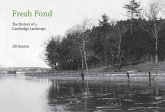
Gebundenes Buch
2. April 2018
Repro India Limited

eBook, ePUB
30. Juni 2004
Concept Publishing Company Pvt Ltd
Ähnliche Artikel


22,99 €
Versandfertig in über 4 Wochen

Gebundenes Buch
A True Story of History's Deadliest Storm, an Unspeakable War, and Liberation
29. März 2022
Ecco / HarperCollins US

Gebundenes Buch
27. Oktober 2022
Creative Media Partners, LLC





Gebundenes Buch
1. Juli 2016
Harbour Publishing Co. Ltd.

Ähnlichkeitssuche: Fact®Finder von OMIKRON
